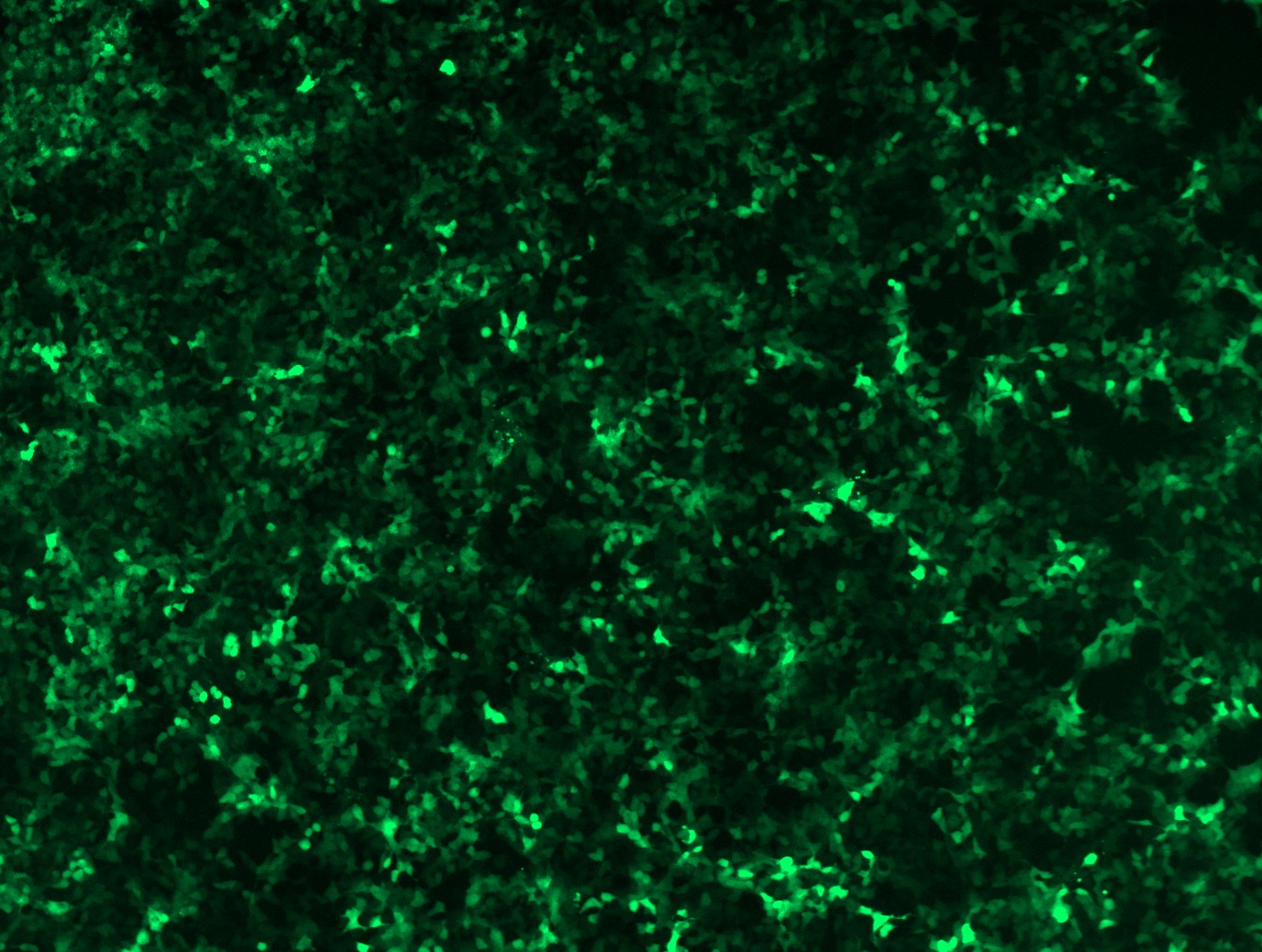Ptk2b Mouse shRNA Lentiviral Particle (Locus ID 19229)
CAT#: TL501788V
Ptk2b - Mouse shRNA lentiviral particles (4 unique 29mer target-specific shRNA, 1 scramble control), 0.5 ml each, >10^7 TU/ml.
Frequently bought together (2)
Other products for "Ptk2b"
Specifications
| Product Data | |
| Locus ID | 19229 |
| Synonyms | CADTK; CAKB; CAKbeta; E430023O05Rik; FADK2; FAK2; PYK2; Raftk |
| Vector | pGFP-C-shLenti |
| Format | Lentiviral particles |
| RefSeq | NM_001162365, NM_001162366, NM_172498, NM_001360233, NM_172498.1, NM_172498.2, NM_172498.3, NM_001162365.1, NM_001162366.1, BC137704, BC024594, BC144849 |
| UniProt ID | Q9QVP9 |
| Summary | Non-receptor protein-tyrosine kinase that regulates reorganization of the actin cytoskeleton, cell polarization, cell migration, adhesion, spreading and bone remodeling. Plays a role in the regulation of the humoral immune response, and is required for normal levels of marginal B-cells in the spleen and normal migration of splenic B-cells. Required for normal macrophage polarization and migration towards sites of inflammation. Regulates cytoskeleton rearrangement and cell spreading in T-cells, and contributes to the regulation of T-cell responses. Promotes osteoclastic bone resorption; this requires both PTK2B/PYK2 and SRC. May inhibit differentiation and activity of osteoprogenitor cells. Functions in signaling downstream of integrin and collagen receptors, immune receptors, G-protein coupled receptors (GPCR), cytokine, chemokine and growth factor receptors, and mediates responses to cellular stress. Forms multisubunit signaling complexes with SRC and SRC family members upon activation; this leads to the phosphorylation of additional tyrosine residues, creating binding sites for scaffold proteins, effectors and substrates. Regulates numerous signaling pathways. Promotes activation of phosphatidylinositol 3-kinase and of the AKT1 signaling cascade. Promotes activation of NOS3. Regulates production of the cellular messenger cGMP. Promotes activation of the MAP kinase signaling cascade, including activation of MAPK1/ERK2, MAPK3/ERK1 and MAPK8/JNK1. Promotes activation of Rho family GTPases, such as RHOA and RAC1. Recruits the ubiquitin ligase MDM2 to P53/TP53 in the nucleus, and thereby regulates P53/TP53 activity, P53/TP53 ubiquitination and proteasomal degradation. Acts as a scaffold, binding to both PDPK1 and SRC, thereby allowing SRC to phosphorylate PDPK1 at 'Tyr-9, 'Tyr-373', and 'Tyr-376' (By similarity). Promotes phosphorylation of NMDA receptors by SRC family members, and thereby contributes to the regulation of NMDA receptor ion channel activity and intracellular Ca(2+) levels. May also regulate potassium ion transport by phosphorylation of potassium channel subunits. Phosphorylates SRC; this increases SRC kinase activity. Phosphorylates ASAP1, NPHP1, KCNA2 and SHC1. Promotes phosphorylation of ASAP2, RHOU and PXN; this requires both SRC and PTK2/PYK2 (By similarity).[UniProtKB/Swiss-Prot Function] |
| shRNA Design | These shRNA constructs were designed against multiple splice variants at this gene locus. To be certain that your variant of interest is targeted, please contact techsupport@origene.com. If you need a special design or shRNA sequence, please utilize our custom shRNA service. |
| Performance Guaranteed | OriGene guarantees that the sequences in the shRNA expression cassettes are verified to correspond to the target gene with 100% identity. One of the four constructs at minimum are guaranteed to produce 70% or more gene expression knock-down provided a minimum transfection efficiency of 80% is achieved. Western Blot data is recommended over qPCR to evaluate the silencing effect of the shRNA constructs 72 hrs post transfection. To properly assess knockdown, the gene expression level from the included scramble control vector must be used in comparison with the target-specific shRNA transfected samples. For non-conforming shRNA, requests for replacement product must be made within ninety (90) days from the date of delivery of the shRNA kit. To arrange for a free replacement with newly designed constructs, please contact Technical Services at techsupport@origene.com. Please provide your data indicating the transfection efficiency and measurement of gene expression knockdown compared to the scrambled shRNA control (Western Blot data preferred). |
Documents
| Product Manuals |
| FAQs |
| SDS |
Resources
| RNAi Resources |
{0} Product Review(s)
0 Product Review(s)
Submit review
Be the first one to submit a review
Product Citations
*Delivery time may vary from web posted schedule. Occasional delays may occur due to unforeseen
complexities in the preparation of your product. International customers may expect an additional 1-2 weeks
in shipping.






























































































































































































































































 Germany
Germany
 Japan
Japan
 United Kingdom
United Kingdom
 China
China



![GFP signal was observed under microscope at 48 hours after transduction of [TL501788C] virus into HEK293 cells. [TL501788C] virus was prepared using lenti-shRNA [TL501788C] and TR30037 packaging kit.](https://cdn.origene.com/assets/images/rnai/shrna-lentiviral-particle/100/tl501788vc.jpg?d=110x110)
![GFP signal was observed under microscope at 48 hours after transduction of [TL501788D] virus into HEK293 cells. [TL501788D] virus was prepared using lenti-shRNA [TL501788D] and TR30037 packaging kit.](https://cdn.origene.com/assets/images/rnai/shrna-lentiviral-particle/100/tl501788vd.jpg?d=110x110)